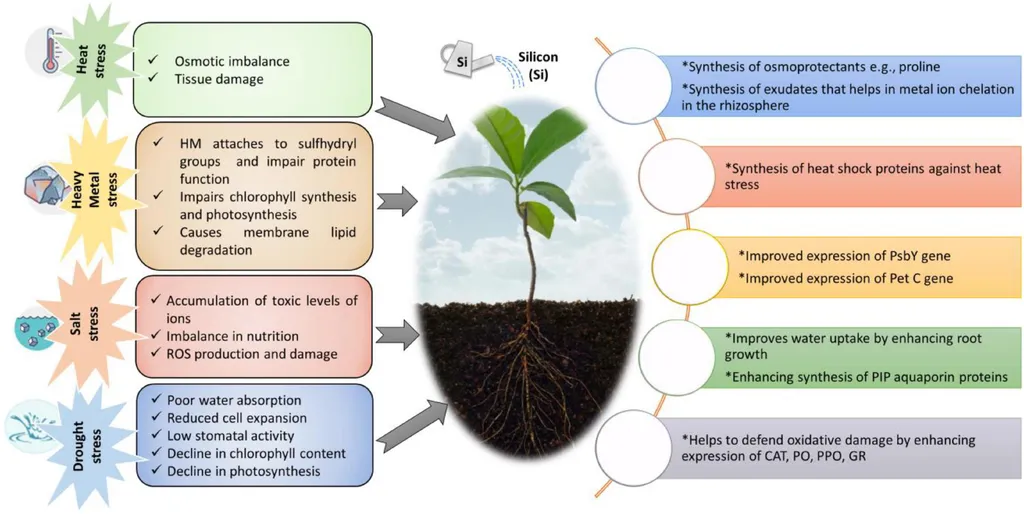In the heart of Brazil, at the University of São Paulo’s Luiz de Queiroz College of Agriculture, a team of researchers led by Augusto B. Penteriche is challenging the status quo of plant stress research. Their work, published in the journal *Plant Stress* (translated from Portuguese as *Plant Stress*), is shedding light on the complex realities of plant defense mechanisms, with profound implications for agriculture and, by extension, the energy sector.
Plants in the wild don’t face stress in neat, isolated packages. They’re bombarded with a cocktail of biotic and abiotic stressors, from pests and pathogens to drought and extreme temperatures. Yet, much of our understanding of plant defense comes from studies that look at these stressors one at a time. Penteriche and his team argue that it’s time for a change.
“Plants are constantly juggling multiple stressors,” Penteriche explains. “They’re dealing with pests while battling drought, or fending off pathogens under extreme heat. These combinations can trigger unique responses that we don’t see when we study stressors in isolation.”
The team’s research reveals that these multifactorial stress combinations can lead to unpredictable transcriptional and metabolic responses. In other words, a plant’s response to a combination of stressors isn’t just a sum of its responses to each individual stressor. This complexity is further compounded by the plant’s interactions with its microbial communities and the volatile organic compounds in its environment.
So, why does this matter for the energy sector? Well, a significant portion of the energy sector is tied to agriculture, from the production of biofuels to the vast amounts of energy required for large-scale farming operations. More resilient crops mean more efficient energy use and more stable supply chains.
Moreover, as climate change intensifies, the likelihood of these complex, multifactorial stress scenarios increases. “We’re seeing more extreme weather events, more pests and pathogens emerging,” says Penteriche. “Our crops are facing challenges that they’ve never faced before. We need to understand how they’re responding to these challenges if we want to develop crops that can withstand them.”
The team’s work is a call to arms for the plant research community. They’re advocating for a shift towards more complex, realistic stress scenarios. This shift could lead to the development of more resilient crops, better equipped to handle the realities of a changing climate.
But it’s not just about resilience. By understanding these complex interactions, we can also improve the efficiency of our crops. More efficient crops mean less energy use, less water use, and ultimately, a more sustainable agricultural system.
In the face of a changing climate and evolving agricultural demands, Penteriche’s work serves as a reminder that our understanding of plant defense must evolve as well. It’s a complex challenge, but one that’s crucial for the future of agriculture and the energy sector. As Penteriche puts it, “It’s time to move beyond the simple, isolated stressors. It’s time to embrace the complexity of the real world.”

